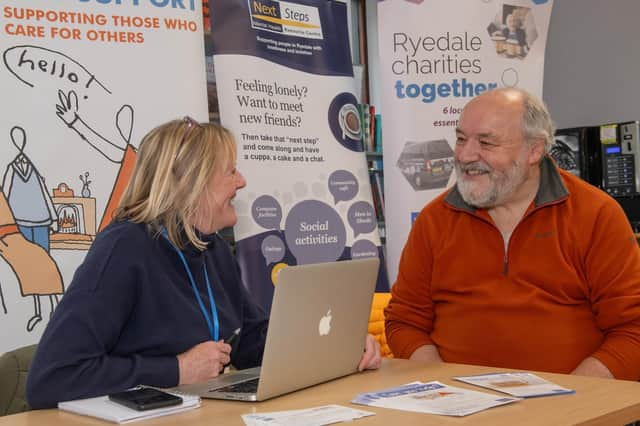Pickering library and community join forces to raise awareness of essential services


Pickering Library has built on a popular existing drop-in with Age UK and partnered with Ryedale Charities Together, Pickering Town Council and Pickering Town CIC to host a Community One Stop event on the first Thursday of every month from 10am to noon.
The drop-ins enable community organisations to gather in one location so that residents in need of advice or support can easily access the help that they need.
Advertisement
Hide AdAdvertisement
Hide AdNorth Yorkshire Council’s executive member for libraries, Cllr Simon Myers, said: “These sessions are a great initiative to access valuable expertise and I would urge people to mark the first Thursday of the month in their diaries.”
Ryedale Charities Together is made up of six charities: Next Steps Resource Centre and Community Café in Norton, Ryedale Carers Support, Ryedale Community Transport (RYECAT), Ryedale Special Families, Sight Support Ryedale and Ryedale Community Food Bank.
Organisations and agencies, including those from North Yorkshire Council, provide support on issues such as policing, disability, housing and healthy living. Library staff are also on hand to talk about the service and resources available in the branch.
The chief officer at Sight Support Ryedale, Di Tymon, said: “We hope people will pop down and have a chat and get to know a little bit more of what we offer and how we serve our local community.”
Advertisement
Hide AdAdvertisement
Hide AdMuch of the work by Ryedale Community One Stop is done with the help of volunteers.
Sessions are organised at venues in the locality.
Visit www.ryedalecharitiestogether.com/one-stop-shop/ for more information.